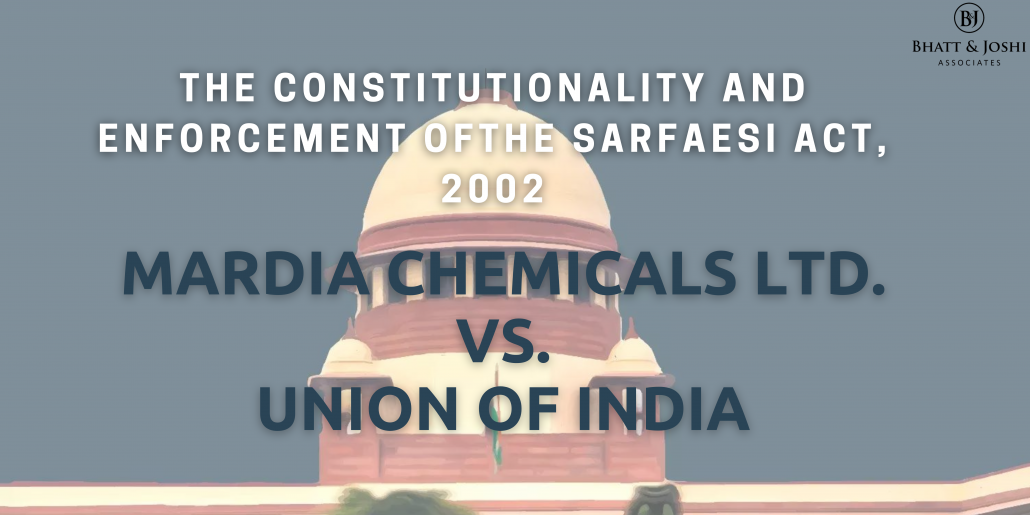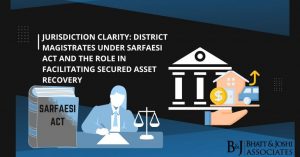Mardia Chemicals Ltd. Vs. U.O.I.: A Landmark Judgment on the SARFAESI Act, 2002
Background
The case of Mardia Chemicals Ltd. Vs. U.O.I. is a landmark judgment delivered by the Supreme Court of India that dealt with the constitutionality and enforcement of the Securitisation and Reconstruction of Financial Assets and Enforcement of Security Interest Act, 2002 (SARFAESI Act). The Act was enacted to enable the recovery of non-performing assets (NPAs) by banks and financial institutions. However, it was challenged on various grounds, including the lack of an adjudicatory mechanism to resolve disputes and the harsh measures taken against borrowers.

Key Legal Issues Raised
The Lack of an Adjudicatory Mechanism
One of the main legal issues raised in the case was the lack of an adjudicatory mechanism or forum to resolve disputes that may arise in respect of the alleged dues or NPAs before any action is taken under Section 13 of the Act.
The Provision of Appeal under Section 17
The provision of appeal under Section 17 of the Act was considered illusory since an appeal may only be preferred after the possession of the property or the management of the secured assets has been taken over or the property has been sold. Furthermore, an appeal is not entertainable unless 75% of the amount claimed in the notice is deposited by the borrower with the Debt Recovery Tribunal.
The Arbitrariness of the Act
The Act was challenged as being arbitrary and suffering from the vice of unreasonableness due to the harsh steps taken against the borrower under sub-section (4) of Section 13, without providing an adequate remedy to the borrower.
The Supreme Court’s Judgment
Upholding the Constitutionality of the Act
The Supreme Court upheld the constitutionality of the SARFAESI Act, 2002, and the measures it prescribes for the recovery of non-performing assets (NPAs). The Court recognized the need for a faster procedure for the recovery of NPAs, given the significant impact of such assets on the economy and the banking sector.
The Adequacy of the Remedy under Section 17
The Court held that the remedy provided under Section 17 of the Act is not illusory. It noted that the condition of depositing 75% of the claim before the appeal could be entertained is not an unusual condition and is found in other statutes as well.
The Bar of Jurisdiction of the Civil Court
The Court also upheld the bar of jurisdiction of the Civil Court, stating that it was necessary to avoid a lengthy legal process in realizing the amount due.
Conclusion
The judgment of the Supreme Court in the case of Mardia Chemicals Ltd. Vs. U.O.I. serves as a significant precedent for the enforcement of the SARFAESI Act, 2002, and the resolution of disputes arising from it. The Court’s comprehensive interpretation of the Act and its enforcement upholds the Act’s constitutionality and its measures for the recovery of NPAs, while also recognizing the rights of borrowers and the need for a fair and reasonable procedure.
Author: Advocate Arjun Rathod, Associate – Bhatt & Joshi Associates.









